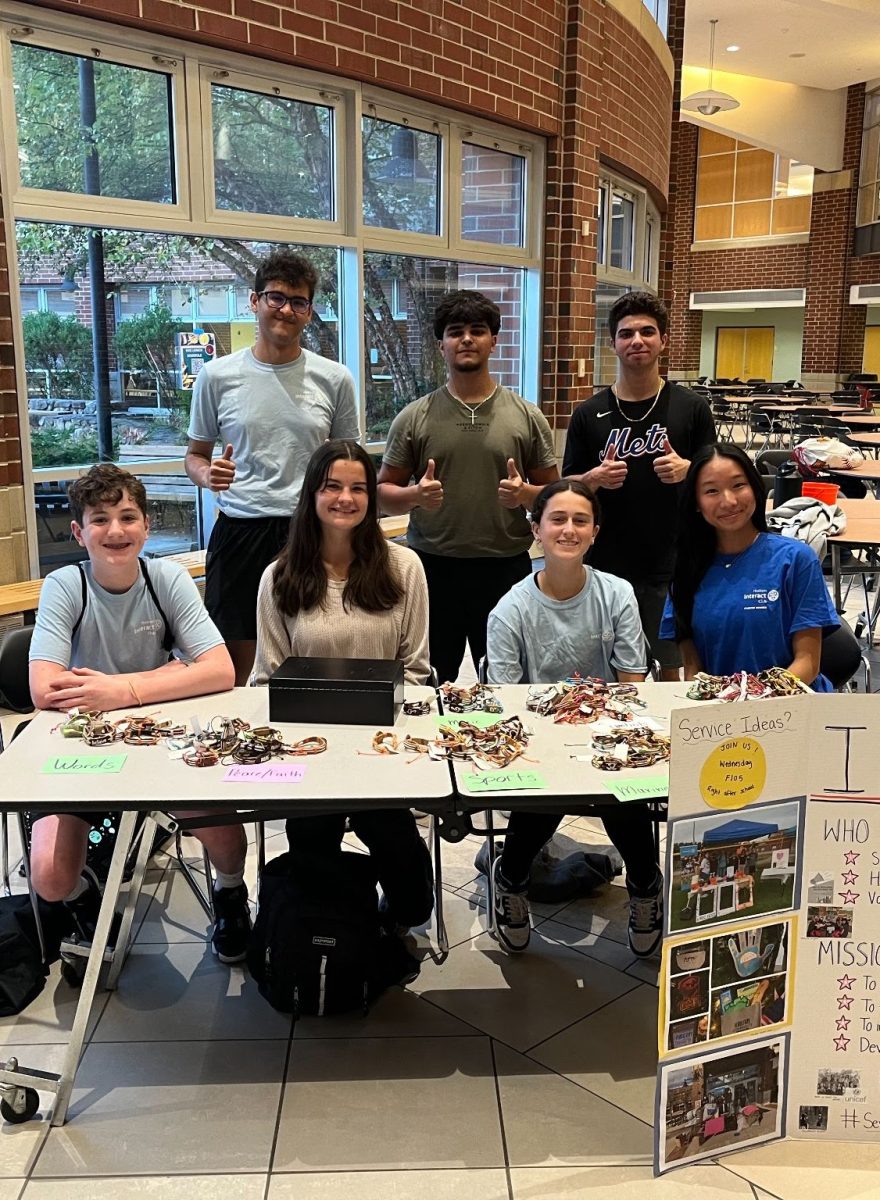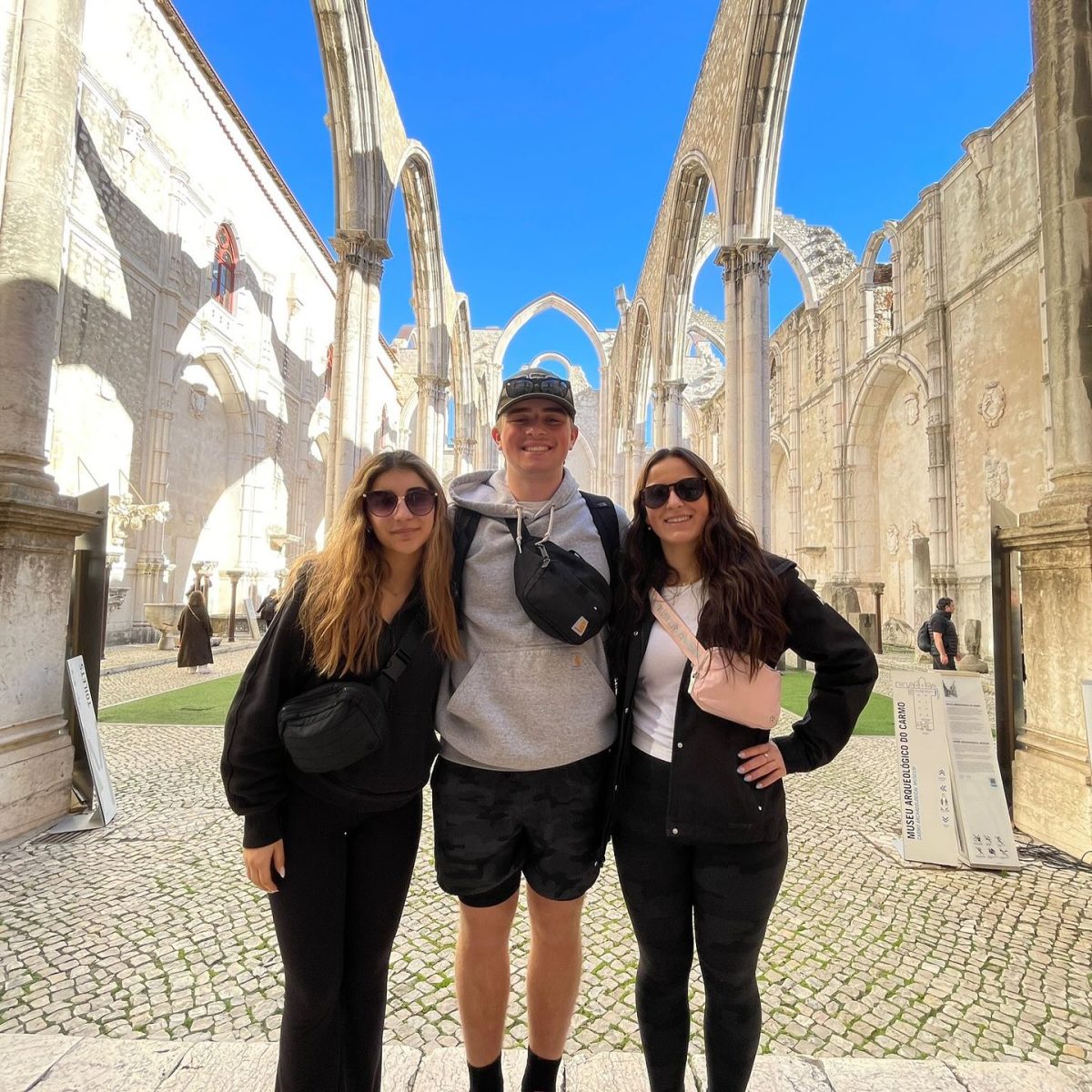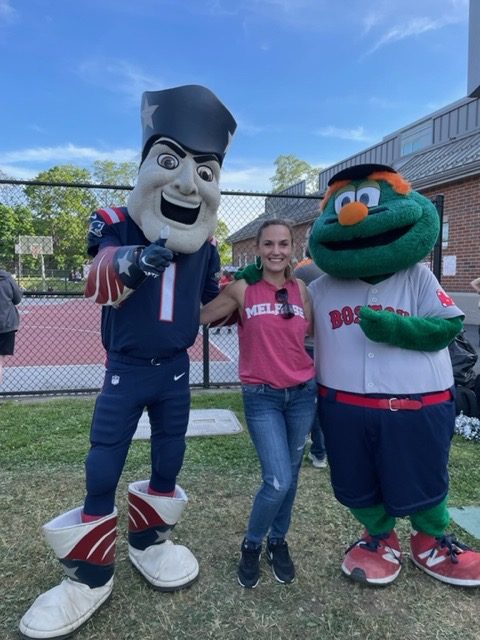
Photo and article by Jon Dacus
In honor of National Poetry month, I have chosen to feature a teacher who inspires her students through both her example and her teaching. Carol “Mother” Hobbs teaches 10th grade English full time at our high school and is currently working on publishing her book of poems titled New Found Lande.
First off, introductions are in order; who are you and what do you do?
I am Carol Hobbs. I am also a poet who has been publishing for many years now in various magazines, journals and anthologies in Canada, the United States, and Ireland. I was born and raised in Newfoundland in Canada.
So, tell us about yourself, what do you like to do in your free time, when you’re not writing your poems?
Free time is an interesting idea. I work full time as an English teacher which means I am planning, teaching and reading/grading student work much of the time. I read. I love movies. I am a wife and mother, so I spend time with my family. I also love to cook, and I sing in a church choir. I also work with a poetry workshop in Brookline, MA, PoemWorks.
What inspires you to write your poetry?
Just about everything. Poetry, in fact all literature, is about what it is to be human. Poetry for me has always been a way to say, as well as I am able, what it is to experience the world I inhabit. All things can inspire me; poetry is my way of encapsulating those experiences.
What is your book about?
My book is titled New Found Lande stolen from a line in a John Donne elegy which reads “oh my America, my new found lande”; it does take on the place of my birth, Newfoundland, and my experiences with family, and emigrating from there following the collapse of the fishery in the nineties. For those who do not know, Newfoundland had a vibrant fishery since European discovery in the late 1400’s, but in the 1990’s the cod stocks were so depleted that all fishing, both commercial and private, was halted. This ecological crisis created an economic crisis and a great out-migration of Newfoundlanders. The shifts of that time meant a strain on families and culture in the province. Many of the poems are about loss and exile, but many celebrate family and connection to place.
How long have you been working on the manuscript?
It’s been the work of several years. I actually read some of these poems on a reading tour with the March Hare Festival in Newfoundland in March 2005. A group of poets including Camelitta McGrath, Michael Crummey, Michael Ondaatje, Barbara Helfgott Hyett, Enos Watts, and me travelled to three cities in the province, through raging snowstorms, to read work. We were accompanied by wonderful folk musicians including the beautiful Anita Best.
What makes your book special? Why should I buy it? (sorry, I know that sounds harsh)
I hope it is beautiful and true. It’s not yet published so buying it is not really an option right now. Maybe you will buy it because I was your tenth grade English teacher. Perhaps someone else likes Donne, so likes the title. Maybe a great cover design will lure people to it. I’m not selling this very well, am I?
What do you think is your crowning achievement? Your best work?
Not yet written.
Who is your “literary hero”? Who do you find always manages to publish something that always speaks to you?
There’s never just one. I can say that I return again and again to certain poets – Yeats, Seamus Heaney, Michael Ondaatje, Shakespeare, Donne, Louise Gluck, Margaret Atwood, Emily Dickinson, and Elizabeth Bishop.
What do you write, is it only poetry?
I write poetry mostly. Although, I guess I could joke that I mostly write comments on students’ essays. I’ve also written and published fiction, essays, and reviews.
Why did you start writing?
I can’t remember not writing. Reading and writing always went hand in hand to me. They were all part of creating stories. I come from a strong oral tradition of storytelling – Newfoundlanders are notorious storytellers. My grandfathers used stories to entertain and educate. One famous story of my Grandfather Hobbs involved an elderly neighbor who was illiterate and drew a picture of the grinding wheel he needed to sharpen axes. Getting the postmistress to address the envelope, he sent the picture by mail to the merchant in the city, and got in return a huge wheel of cheese. As I child, I thought this story was hilarious, but it was really my grandfather’s way of telling me to be literate. He had only an elementary school education and then was sent out to work in the mines at Tilt Cove, Newfoundland when he was twelve. He always loved books though, and encouraged us to study and read and write. Grandfather went on to build and run his own sawmill, and there were many hours that I would sit at his office desk at the mill and write on broad sheets of white packing paper. I loved the thick carpenters’ pencils he kept there, and the blue crayons used to mark the numbers on scaled lumber. I don’t remember what I wrote, but it felt important.
Any tips for young, hopeful authors out there?
Write well. Make your writing the best it can be. Take writing classes and listen to the criticism you receive. Write many drafts of your work. Be aware that you have an audience and it is your job to create something wonderful that your audience will read. Send your work out to magazines and journals, and if you are rejected, write more and send your old and your new work to more places – don’t be discouraged. And READ! To understand how language creates and recreates the world, you have to see it working on the page. Oh, and be curious about the world around you.
Where might we purchase your book and when will it hit the markets?
Too soon to say. Right now I am sending out the manuscript to publishers. The manuscript in an earlier version won the New England PEN Discovery Award. I think it is better with the recent editing, so I am hopeful that someone else thinks it is worthy of publication. I had to finally stop editing the thing and just send it into the world. It was tough to let it go.
Thank you for your time Mrs. Hobbs,
Thank you!






